Here are some notes on books I read in 2018. They’re not book reviews, more notes on whatever I found interesting in them. I recommend reading all of them; the books I didn’t get much out of I won’t list here.
Turing and the Universal Machine, by Jon Agar

This concise book has quite a controversial philosophy behind it, namely that it’s not technology that shapes society, but society that shapes technology by demanding it solves its problems.
I’m not sure I buy it (don’t we all demand instant teleportation technology?), but the argument takes us through some interesting information about the advent of the computer.
To do this Agar goes back to the early days of the railways. What I didn’t know was that in 1876, the London Railway Clearing House had 1440 clerks whose job it was to work out how money should be divided between different railway companies. Computation demands were also increased by the need to ensure the safe passage of trains through the complex railway system.
Similarly, aviation required computers to perform the calculations required to drive the safe design of aeroplanes. According to this history, the first specialised programming language – the catchily-named but eminently google-able Plankalkül – was invented by Konrad Zuse. Not a name I knew before reading this book, but definitely one that needs to be considered alongside Turing.
These examples from railways and aviation as well as the history of Bletchley Park all suggest that it was ‘crises of bureaucratic control‘ in industrial complexes gave rise to the innovations that led to the modern computer.
Deep Work, by Cal Newport
In the end quite a superficial book that contains a simple insight, which is that in a distracted world it might be important to make space to do the ‘deep’ work free of distraction that gives us something of value to contribute to society.
Also makes the point that this is nothing new. Main example given is Jung, a busy therapist working in a city who made sure he went to an isolated place to work in depth on his writing and ‘deeper’ work.
However, it does emphasises the importance of rest, which led me to pick up…
Why We Sleep, by Matthew Walker
When someone’s spent decades studying something you do for eight hours a day, then you probably should listen to them.
Contains wonderful nuggets, like the fact that heart attacks spike when the clocks go back, and plummet when the clocks go forward, suggesting that something as small a disruption to sleep as that can have a significant effect on the body.
Or that PTSD sufferers can be treated by encouraging REM sleep, suggesting that a good night’s sleep can help you cope with traumatic situations big and small.
Or that the punishing US sleep-deprived doctors’ training regime was instituted by a Dr Halstead, who was himself a cocaine addict, and as most people already know, many deaths are caused by tired doctors.
Or that 19 hours awake makes you drive as badly as being at the limit of drunkenness (0.08% blood-alcohol). If you sleep for four hours, you are 11.5 times as likely to have an accident. If you’re at the legal limit for drink and have had only four hours’ sleep, then you are 30x more likely to have an accident. Being tired makes everything worse…
I gave up caffeine as a result of reading this book, and now wake up feeling refreshed every day, as well as having less need for alcohol). I no longer begrudge my over-8-hour need for sleep, and embrace it.
If you read this book and don’t take sleep more seriously as result, then you’re probably too sleep-deprived to think clearly ;-)
Sleep, by Nick Littlehales
Why We Sleep did a good job of persuading me to take sleep more seriously, but didn’t tell me much about what to do to improve it. This book is written by a ‘sleep coach’ for top athletes. His big break was with Manchester United: he wrote to Alex Ferguson and asked him what he was doing about sleep. Like most of us, the answer was ‘nothing’, but that soon changed.
Littlehales encourages us to think of sleep in 90-minute cycles. The most interesting piece of advice was a counter-intuitive one: if you come home late from work drinks (for example), don’t go straight to bed. You’re likely to still be buzzing, and may lay awake stressing about who said what to who. Instead, start your standard pre-sleep wind-down, and go to bed later to pick up on your next 90 minute cycle. You’ll get better sleep that way.
I have started to think of my day in 90-minute chunks – from waking up to starting work, winding down to sleep, a break every ninety minutes from thought-intensive work to go for a quick walk, and so on.
Exactly, by Simon Winchester
Very enjoyable book about precision in engineering. Among other things, a fascinating retelling of the Hubble telescope’s original failure due to a tiny flaw in a measuring device, and an interesting early history of the industrial revolution and how precision engineering played a central role: if the ability to create pistons with accuracy were any worse, then steam engines would have been effectively useless.
Also led me to look up Reverend Wilkins, who wrote works on cryptography, suggested standardisation of language and measurement, argued for the feasibility of travel to the moon, and invented the transparent beehive. Impressive enough at any time, but this was nearly 400 years ago!
The Square and the Tower, by Niall Ferguson
Typically for Ferguson, this combines broad historical scholarship and modish ideas. In this case, he looks at graph theory to view history through the lens of different types of networks of people that shape it.
It’s a fertile subject as he takes us through periods where the hierarchical mode of being, while mostly effective for human societies, breaks down in the face of coherent but distributed networks of people.
I found fascinating the history of British army victory in Borneo, where Walter Walker overthrew traditional notions of military command to pioneer decentralised fighting networks, and its comparison to the US army’s failure in Vietnam.
Also fascinating was Ferguson’s analysis of Al Quaeda’s 9/11 attack as resting on a misunderstanding of US power. By taking out the World Trade Centre, the US financial system was not brought down, as the capitalist system is fundamentally a distributed network. Al Quaeda wrongly thought it was a hierarchical system. However, Lehman’s collapse very nearly did, since the effect of its failure was networked to all other banks in the system.
Homo Deus, by Yuval Noah Harari
I wrote about Sapiens here, but the follow-up Homo Deus was almost as good.
Before I read this book, I had never made the connection between the expulsion from Eden and the Agricultural Revolution. With no more gathering wild fruits, Adam is condemned to eat by the sweat of his brow.
I also didn’t know that of the 56million people that died in 2012, 620,000 were due to human violence (20% war, 80% crime), 800,000 committed suicide, and 1,500,000 due to diabetes. In other words, sugar is more deadly than weapons.
The central argument of the book is that mankind has come to worship itself through humanism, perhaps just before we’re making ourselves redundant (because superintelligent AI, natch). A nice tour of pop science and history thought on where we are going.
The Tipping Point, by Malcolm Gladwell
Well known to (and probably already read by) many readers, the bit I found most interesting about this book was the brief history of the clean-up of the New York Subway.
It took six years to clean up the graffiti on the New York Subway. The cleaners would wait until the kids finished their work, then paint over it while still in the sidings. The artists would cry as their work was destroyed. After this, they started going after the fare jumpers.
In other words, small things matter, and build up to a ‘tipping point’, where the (positive) contagion is self-sustaining.
Scale, by Geoffrey West
West explains why Godzilla couldn’t exist, and as a result explains how the growth of cities, animals, or indeed anything physical at all can be explained through relatively simple mathematical models.
As someone who finds the fractal complexity of cities, software estimation, and operational scaling interesting, I was inspired by this book to write a blog post on the relationship between mathematical fractality and software project estimation. Fortunately, somebody already did a better job than I could have, so I didn’t need to.
A Brief History of Everyone Who Ever Lived, by Adam Rutherford
Enjoyable discussion of what we currently understand about our species’ lineage.
This handy table and mnemonic was in there. I’d always wondered about these:
Domain Dumb Eukryota (complex life) Kingdom King Animali (animals)
Phylus Phillip Chordate (animals with central column)
Class Came Mammalia (milk-producing)
Order Over Primates (monkeys, apes)
Family For Hominidae (great apes)
Genus Group Homo, Gorilla
Species Sex Sapiens, Gorilla
I also finally found out something else that had always bugged me: the definition of species is slippery, but the most stable one is: animals who, when they reproduce, are likely to produce fertile offspring. Ligers, for example, are infertile. Of course the notion of species is a human and slippery one, since we now know Homo Neanderthalensis and Homo Sapiens reproduced. Categorisation is messy and complicated.
Another thing that had always bugged me was explaining why African villages have more genetic diversity than (say) white Londoners. It’s pretty obvious on reflection: because we all came out of Africa, however much we reproduce we’re still drawn from a subset of those Africans, until we generate more genetic diversity than existed from that original pool.
Which will take a long time, since there are typically 100 unique mutations in each person. And most of those (presumably) serve no purpose and will only be passed on (or ‘catch on’) by chance. Not all of them though: the ability to drink milk in adulthood, for example, is a mutation we now believe is only five- to ten-thousand years old.
The Deeper Genome, by John Parrington
I’m going to have to read this one over and over, as it’s an incredibly dense introduction to the latest research into genetics. I hadn’t understood epigenetics and its implications at all until I read about it here, and my previous understanding of DNA as ‘just’ a stream of binary-encodable data was exploded by the three-dimensionality hinted at by the existence of ‘action at a distance’ in the genetic code.
I think I understood about 10% of this book if I’m honest…
Get 39% off Docker in Practice with the code: 39miell2
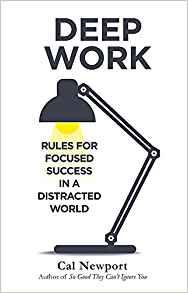
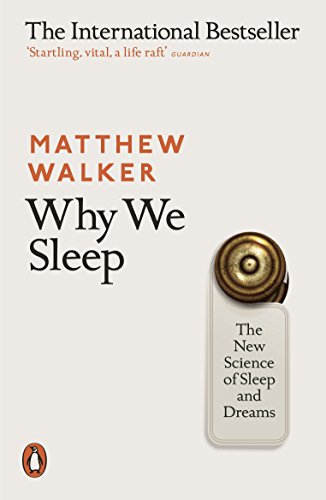

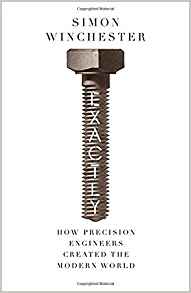

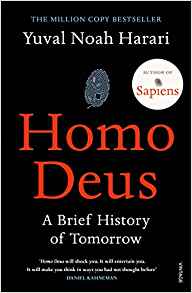
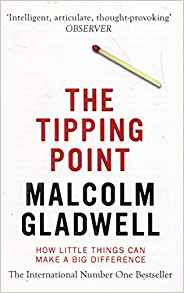
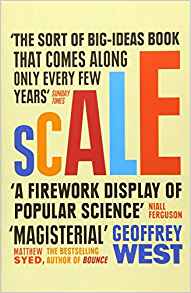
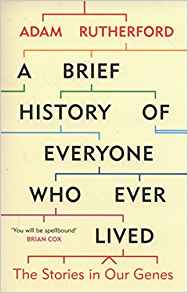
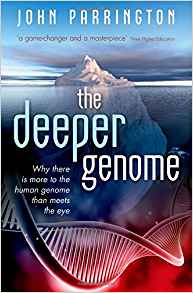
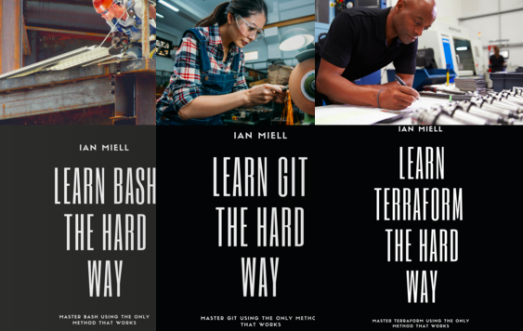

One thought on “Notes on Books Read in 2018”